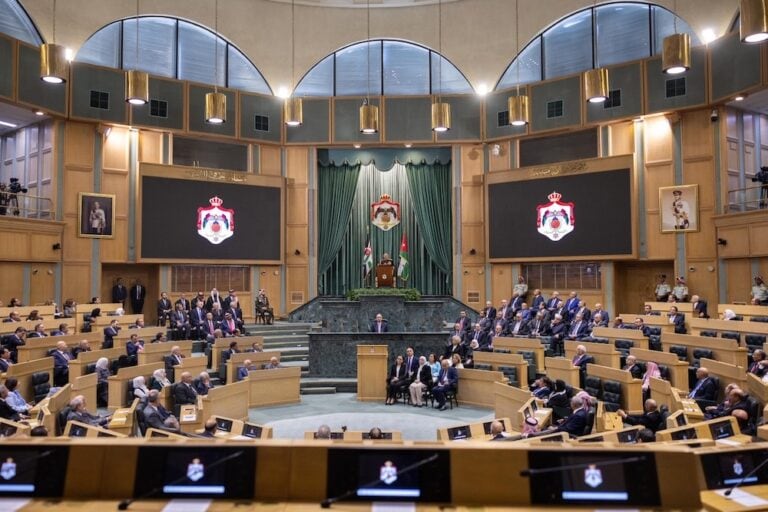(HRinfo/IFEX) – HRinfo has denounced decisions announced by the Jordanian ministry of the interior increasing restrictions on internet cafés in Jordan, on the pretext of maintaining security, through installing cameras to monitor users of these cafés. HRinfo also emphasized that these procedures are a real retreat from freedom to use the Internet and the right […]
(HRinfo/IFEX) – HRinfo has denounced decisions announced by the Jordanian ministry of the interior increasing restrictions on internet cafés in Jordan, on the pretext of maintaining security, through installing cameras to monitor users of these cafés. HRinfo also emphasized that these procedures are a real retreat from freedom to use the Internet and the right to exchange information.
The Jordanian ministry of the interior has recently issued new instructions for monitoring internet cafés, which are widespread throughout Jordanian cities, obliging internet café owners to install cameras at the front of their cafés in order to facilitate identification of the users of these cafés.
In addition to the cameras, HRinfo notes that the new security measures oblige internet café owners to register the users’ personal data such as their names, telephone numbers and time of use, as well as the IP number of the café and data on the websites explored by the users.
The newly-announced policies on “organizing the work of internet cafés” also included obliging internet cafés owners to install censorship programmes to prevent access to websites containing pornographic material, or those offending religious beliefs or promoting the use of drugs or tobacco.
It should be noted that Jordan is one of many Arab countries where Internet cafés are widespread. Shafiq Rashidat Street (University Street) in Irbid City has even been registered in the Guinness Book of Records as having the highest number of Internet cafés on one street. It has more than 130 Internet cafés, although the street length does not exceed 2000 metres.
An earlier HRinfo report had expressed cautious optimism about Jordan, as the decisions on “organizing the work of internet cafés and centers” were becoming more flexible regarding the terms and conditions that apply to these centres.
HRinfo denounces such decisions, which violate the right to exchange information and the privacy of Internet users, and calls on the Jordanian government to reconsider such arbitrary decisions which would lead to Jordan joining the ranks of those countries which are hostile to freedom of access to Internet.
For more information, see the following HRinfo documents:
– The Internet in Jordan (2004 report): http://www.hrinfo.org/en/reports/net2004/jordan.shtml
– The Internet in Jordan (2006 report): http://www.openarab.net/en/reports/net2006/jordan.shtml


